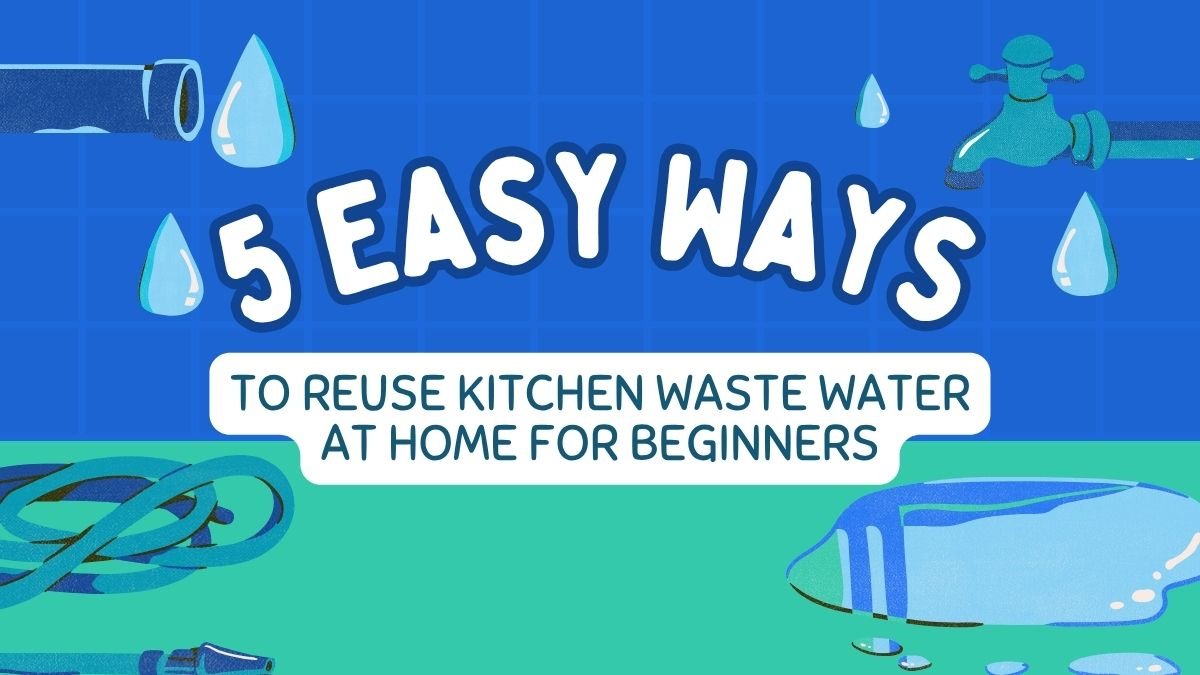Reuse Kitchen Waste Water: Most of us throw away the water left over while cooking in the kitchen or after that, with the thought that it is useless and has no use. But the truth is that if this thrown-away water is used properly, then not only can the water consumption in the house be reduced, but the environment can also be protected. Today, when the water crisis is increasing rapidly and water conservation is being talked about on every platform, kitchen water can be the simplest and most effective way through which the common man can also become a part of this campaign to save water.
In this article, we will tell you how you can reuse the water used or saved in the kitchen, and that too without any special equipment or expense. These measures are not only easy but also do not hamper your daily routine. Let us know how kitchen water can be converted into a resource.
Boiled vegetable water—a treasure trove of nutrition for plant health
When we boil vegetables such as potatoes, carrots, peas, spinach or cauliflower, the water left in that process is often poured directly into the drain. But very few people know that this water is rich in nutrients, because during the boiling of the vegetables, the vitamins and minerals present in them get mixed in this water. If you cool this water and give it to the plants in your home pots or garden, then it works like a natural fertilizer.
Keep in mind that if you want to use this water on plants, then do not add salt to it at all. Salt can harm the quality of the soil and dry the roots of the plants, due to which their growth stops or they can wilt. So cool the boiled vegetable water without salt and pour it into the plants and see how your plants become even more green and healthy.
Utensil washing water—use it wisely.
The water that comes out while washing utensils every day is usually considered dirty and poured into the drain. But if you pay attention, two types of water come out in the process of washing utensils—one that contains soap or detergent and the other that we use to rinse the utensils with plain water before washing. This second water, if it is without any chemicals, can be used in gardening.
You can use this water for indoor plants in your home or for potted plants outside. However, caution is very important here. If you have used dishwashing liquid or other chemicals, do not pour that water on the plants. It can deposit harmful chemicals in the soil, which can damage the roots of the plants. It would be better if you used lukewarm water or plain water before cleaning utensils, collected the same and gave them to the plants.
Hot water for tough frozen utensils—use it directly from the kitchen for cleaning.
Often there are some utensils in which food sticks and it takes a lot of effort to wash them. Such utensils are first soaked in hot water for some time so that the frozen dirt comes out easily. For this, you can use the same hot water that you used to boil potatoes, rice or pasta.
If you have boiled pasta, potatoes or anything else and a little salt has also been added to the water, then also use this water to soak the utensils instead of pouring it directly into the drain. This will not only reduce your effort, but you will also avoid heating water on gas again. This method is especially effective for those who cook food daily and want to save time and effort in washing utensils.
Rice washing water—miraculous benefits from hair to plants
We all must have heard at some time or the other that rice water is good for hair, but do you know that this water also acts as a natural fertiliser for plants? When you wash rice before cooking it, the water that comes out is rich in starch and other minerals. This water is very beneficial, especially for small-scale home gardening.
You can pour this water directly into the plants or collect and store it in a bottle and use it when needed. It can be used for irrigation by making holes in the lid of a spray bottle or any ordinary bottle. It will not only provide the necessary nutrients to the plants but will also increase the fertility of the soil. Elements like NPK (nitrogen, phosphorus, and potassium) present in rice water increase the strength of the roots of the plants and the greenness of the leaves.
Be careful—not all kitchen water is useful.
While some types of kitchen water are beneficial for plants, there are some waters that can be harmful to them. Especially water that contains oil, excess salt, sugar or chemical cleaners should never be used on plants. This can cause imbalance in the soil and damage the roots of the plants.
You should always ensure that the water you want to reuse is biologically safe and free of any chemical elements. If the water smells chemical or is very dirty, avoid using it for gardening.
Conclusion: Every drop of water is precious.
The water we unintentionally throw away in our daily lives is actually a precious resource. By using kitchen wastewater properly and wisely, you can not only reduce your household water bill but also save money on the environment. You can also give a big relief to the water.
Today, when the world is rapidly moving towards a water crisis, it is our responsibility to make every possible effort to save water. So start from today itself—rethink the water thrown away from your kitchen, reuse it and be a part of this small but important step of saving water.

